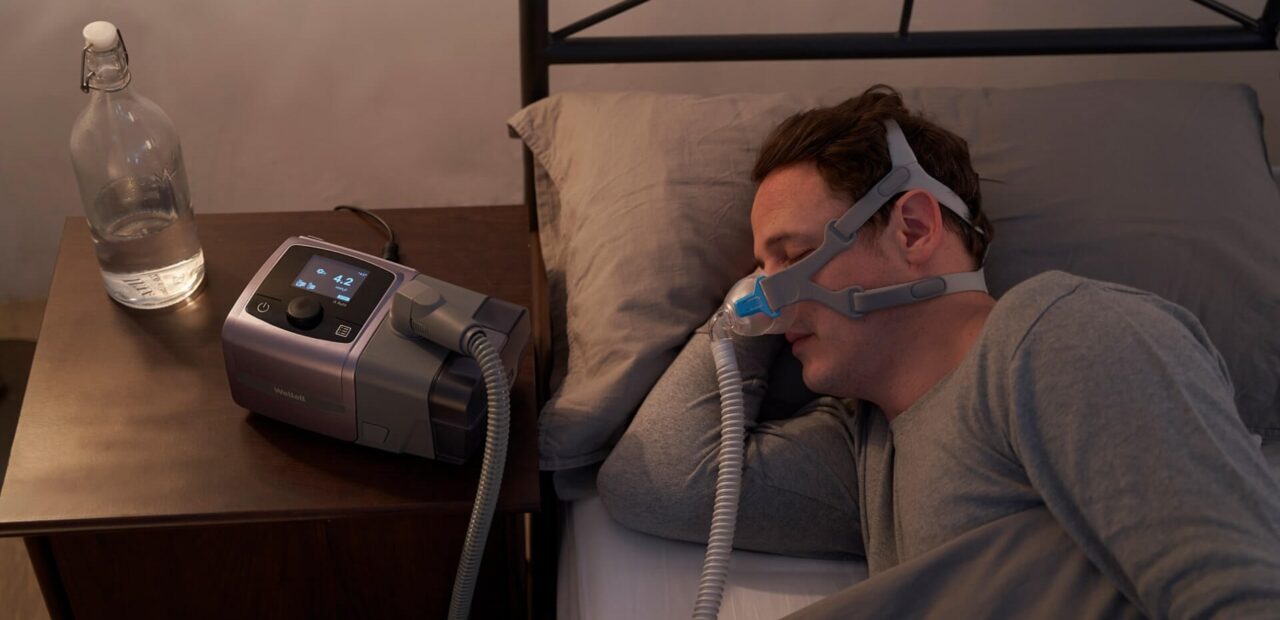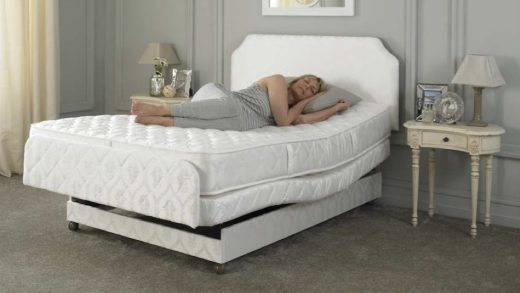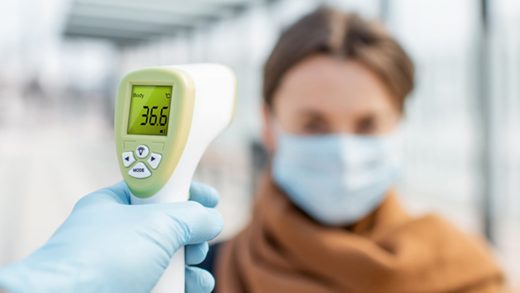Peaceful Uninterrupted Sleep: The Benefits of Auto CPAP Machines
Sleep disorders are a serious problem for an increasing number of people. Not getting uninterrupted sleep means our bodies cannot recuperate during the night so we can’t function properly the next day. This is why the implementation of CPAP machines in your night routine can play a vital role.
Continuous Positive Airway Pressure (CPAP) machines are essential devices in the treatment of sleep apnea, a common sleep disorder characterized by interruptions in breathing during sleep. Two main types of CPAP machines are widely used – Auto CPAP (APAP) and Fixed CPAP. In this article, we will delve into the benefits and differences of auto CPAP machines compared to fixed CPAP machines.
Contents
What Is an Auto CPAP Machine?
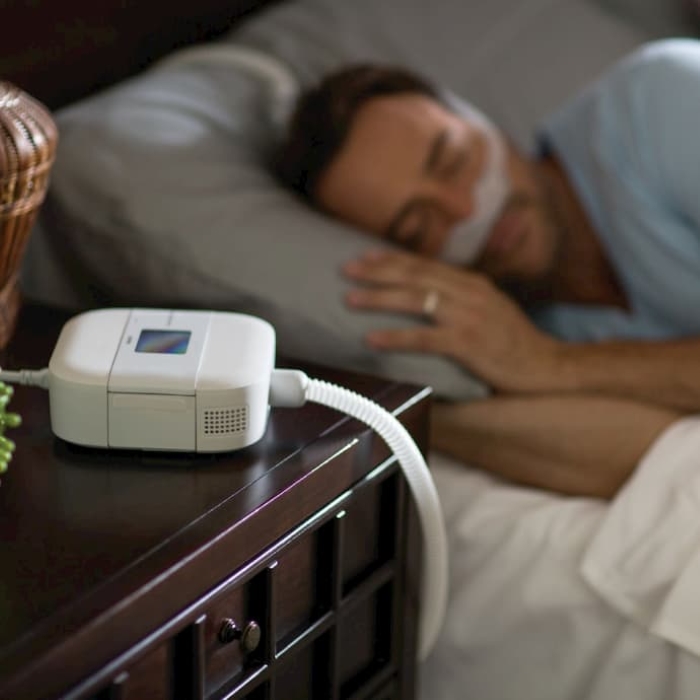
Auto Adjusting Positive Airway Pressure (Auto CPAP) machines are advanced devices that offer dynamic adjustments to air pressure based on an individual’s breathing patterns throughout the night. These machines utilize algorithms to continuously monitor the user’s airflow and adjust the air pressure accordingly.
This adaptive feature distinguishes them from fixed CPAP machines, providing a more personalized and comfortable therapy experience. If have only recently been diagnosed with sleep apnea and you are not sure what your individual needs are, the auto CPAP machine will recalibrate according to your breathing needs.
Benefits of Auto CPAP Machines
APAP Machines offer many benefits that the fixed CPAP models don’t. Understanding their advantages will help you choose the best solution for your personal needs and finally get a good night’s sleep.
Individualized Treatment
What is an optimal pressure at one point can easily change due to a number of factors. This requires adjustments that might seem complicated. The auto CPAP machines can adapt to changes in a person’s breathing patterns, ensuring that the therapy is tailored to their specific needs. This individualization enhances treatment efficacy and comfort.
Optimized Pressure
The automatic adjustment of pressure levels means that users receive the minimum pressure necessary to maintain an open airway. This optimized pressure reduces discomfort and the likelihood of side effects such as mask leakage or nasal congestion.
Adaptability to Sleep Position
Sleep apnea symptoms can vary based on sleep position. APAP machines can detect changes in position and adjust pressure levels accordingly, preventing airway collapse and maintaining effective therapy throughout the night.
Data Logging and Reporting
Auto CPAP models typically have built-in data logging capabilities that record information about the user’s sleep patterns and therapy adherence. This data can be valuable for healthcare providers in fine-tuning treatment plans.
Improved Compliance
The adaptability and comfort provided by auto machines often result in better user compliance. Patients are more likely to adhere to their treatment regimen when they experience a personalised and comfortable therapy.
No Hospital Testing
To determine the optimal pressure that the fixed CPAP machine should be set at, you will need to have a sleep test at the hospital or a sleep clinic, monitored by a sleep expert. With the auto CPAP machine you can do that at home. Additionally, since it will automatically adjust to your breathing patterns, there is no need to determine the exact amount of pressure needed. The machines are set to a default range of 4-20 cmH2O and will accommodate all the pressures within this range.
Fixed CPAP Machines
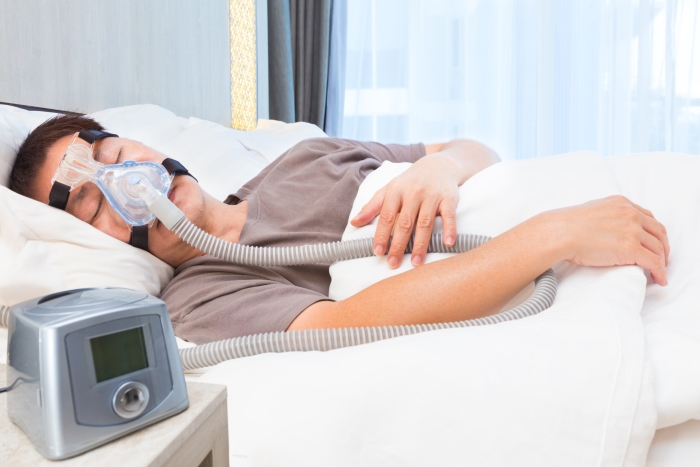
Fixed CPAP machines, on the other hand, deliver constant and continuous air pressure throughout the night. While effective in maintaining an open airway, they lack the adaptive features found in auto CPAP machines. The pressure level is pre-determined by a sleep specialist or your doctor, and shouldn’t be altered without consulting with them.
Differences between Auto CPAP and Fixed CPAP Machines:
- Pressure Adjustment: The primary distinction lies in how these machines adjust air pressure. Fixed CPAP machines provide a constant pressure set by the healthcare provider, whereas APAP machines automatically adjust pressure based on the user’s needs.
- Flexibility: Automatic CPAP machines offer greater flexibility in accommodating changes in sleep patterns and positions. Fixed CPAP machines, with their static pressure settings, may not be as responsive to individual variations in breathing.
- Comfort and Tolerance: APAP machines are often considered more comfortable due to their ability to deliver the minimum necessary pressure, reducing the chances of discomfort and CPAP mask-related issues. Fixed CPAP machines may lead to increased discomfort, especially if the prescribed pressure is higher than required.
- Data Monitoring: APAP machines typically provide more comprehensive data monitoring capabilities, allowing healthcare providers to assess therapy effectiveness and make informed adjustments. Fixed CPAP machines may have limited or no data reporting features.
To Sum Up
Choosing between auto CPAP and fixed CPAP machines depends on individual needs, preferences, and the severity of sleep apnea. APAP machines offer a more adaptive and personalized approach to therapy, promoting comfort and compliance. However, fixed CPAP machines remain a reliable option for individuals who may not require dynamic pressure adjustments. Ultimately, consulting with a healthcare professional is crucial to determine the most suitable CPAP therapy based on individual sleep patterns and needs.

